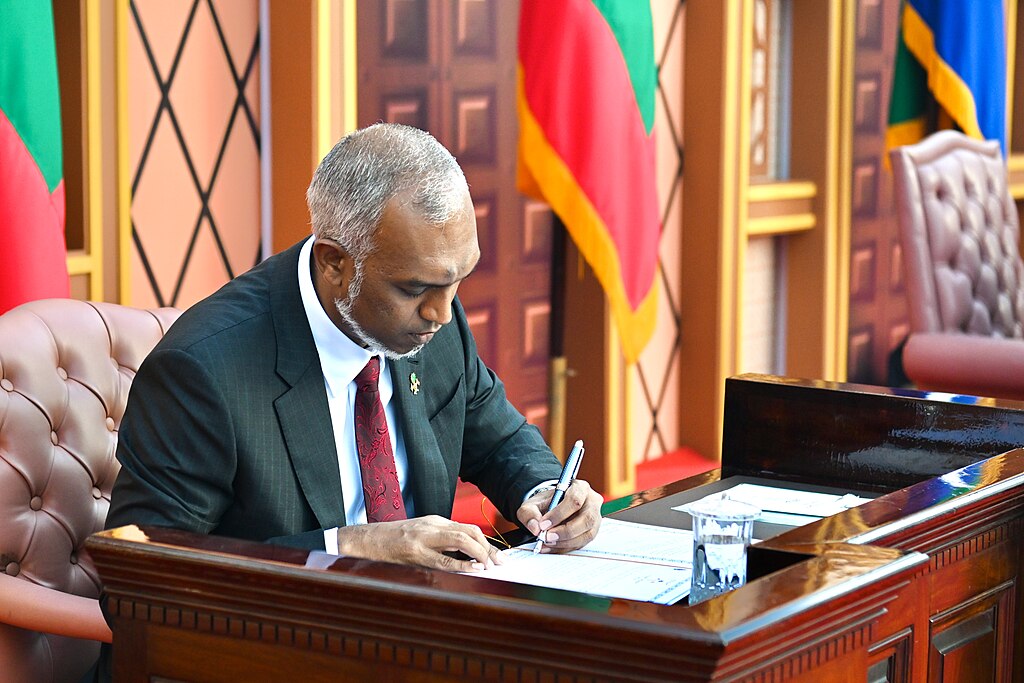
A coalition of nine human rights organizations has called on the Maldives to reject proposed amendments that aim to reinstate the death penalty for drug trafficking. The groups expressed their concerns in a joint statement released on Wednesday, citing that such a punishment is archaic, inhumane, and inconsistent with international human rights standards.
The announcement comes after President Dr. Mohamed Muizzu revealed he had initiated a review of the proposed changes to the Drug Act (No. 17/2011). These amendments seek to impose the death penalty on individuals convicted of smuggling drugs. Initially presented to Parliament in December 2024, the bill is part of the government’s strategy to enhance punitive measures against the rising illicit drug trade.
According to a report by the Maldives Bureau of Statistics, the country has seen over 50,000 reported drug cases between 2016 and 2023, with a significant increase in positive opiate tests. As public concern over the escalating crime rate grows, there is mounting pressure for stricter measures. Yet, rights organizations argue that reinstating capital punishment would breach the Maldives’ obligations under the International Covenant on Civil and Political Rights (ICCPR).
International Standards and Human Rights Concerns
The coalition emphasized that introducing the death penalty would violate Article 6(6) of the ICCPR, which advocates for the abolition of capital punishment. They highlighted that the UN has consistently maintained that any justification for depriving someone of life must be interpreted with the utmost caution. The organization argues that capital punishment should only be reserved for the most serious crimes, such as intentional killing, and extending it to lesser offenses undermines international human rights standards.
While the Maldivian government believes that harsher penalties could deter drug trafficking, rights advocates contend that the death penalty often targets vulnerable individuals, such as low-level couriers, while allowing key figures in drug trafficking networks to evade justice. They argue that a more effective approach would involve prosecuting and imprisoning drug kingpins, rather than punishing those at the bottom of the drug trade.
The notion that the death penalty enhances public safety is regarded as outdated. The call for its reinstatement reflects a misunderstanding of the complexities surrounding drug-related crime and fails to address the systemic issues that fuel the drug trade.
The Path Forward for the Maldives
With a significant rise in drug-related offenses, the Maldivian government faces a critical junction. The coalition of rights organizations is urging the Maldives to adopt a more humane and effective approach to combat the drug crisis. They contend that addressing the drug trade requires a comprehensive strategy that targets the root causes rather than resorting to irreversible punishments.
As the debate unfolds, the international community will be watching closely to see whether the Maldives upholds its commitments to human rights and recognizes the importance of alternative measures that promote rehabilitation over retribution. Ending the practice of the death penalty for drug offenses would not only align the Maldives with global human rights standards but also pave the way for more effective solutions to the ongoing challenges posed by drug trafficking.






